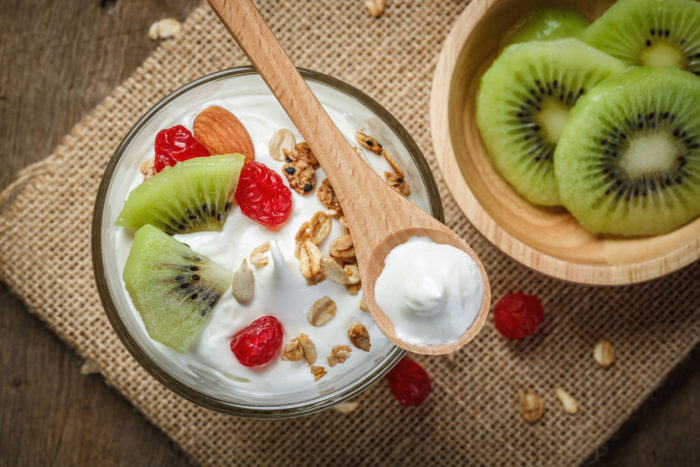Contents:
- Medical Video: 10 Healthy Tips to Improve Your Digestive System
- Why are good bacteria needed by children?
- Tips to increase good good bacteria for your child's digestive tract
- 1. Provide healthy food for microbes in the intestine
- 2. Provide healthy snacks with probiotic foods
- 3. Do not prohibit children from playing outside the home
- 4. Avoid taking antibiotics if not needed
Medical Video: 10 Healthy Tips to Improve Your Digestive System
Not all bacteria are bad, really. You must know that in the body there are various kinds of bacteria; good and bad. For children who are very vulnerable to digestive problems, these good bacteria (probiotics) are very important for their health. Now, to increase the amount of probiotics in a child's body, you can follow the tips below.
Why are good bacteria needed by children?
Children tend to be careless and do not fully understand which ones are clean and dirty. They often put their hands or toys that are not necessarily clean into their mouths, reuse tablespoons that have fallen, and so on. This makes it easier for bacteria, germs, and bad viruses to enter the child's body and cause various diseases.
The digestive system of the child who is not fully mature and whose immune system is not yet strong makes the child very susceptible to digestive disorders, for example diarrhea. Now, to prevent this, parents need to understand that the number of probiotics in a child's intestine must be increased.
Optimal intestinal health is characterized by the large number of probiotics in the child's intestine. This probiotic has the ability to inhibit the growth of bad bacteria by supporting the immune system. In addition, probiotics also play an important role in metabolizing and digesting nutrients from foods that are important for children's growth and development.
Tips to increase good good bacteria for your child's digestive tract
Increasing probiotics in a child's intestines can prevent various digestive disorders and support the overall health of the child's body. Fortunately, ways to increase probiotics are not difficult, parents can follow the following steps.
1. Provide healthy food for microbes in the intestine
Before increasing the number of probiotics, keeping existing gut microbes important. How to choose a menu of foods that are rich in fiber. Eating fibrous prevents hunger gut microbes from consuming mucus that lines and protects the intestinal wall.
This prevents inflammation that can increase the risk of inflammatory bowel disease, allergies, or asthma. You can provide food from vegetables, fruits, grains, and nuts. If your child is often picky about food, you should outsmart it by making interesting menu variations so that the child is not bored and more eager to eat.
2. Provide healthy snacks with probiotic foods
Yogurt is one of the foods that are rich in probiotics. Well, this food can be added with various types of fruits so it is suitable to be a healthy snack for your little one. However, you must be careful in choosing yogurt products for children. Yogurt on the market often contains added sugar.
So, you should choose yogurt without additional sweeteners. Sweetness can be obtained from fruits that you mix or with honey.
3. Do not prohibit children from playing outside the home
The child's main activity is playing. They can play in the house with their toys or mingle with their friends on their yard, garden or garden. Both are equally beneficial, not only for the child's mentality but also supporting the microbial gut to become stronger.
According to JAMA Pediatrics, children who tend to play the ground like gardening have a stronger immune system. They rarely fall ill or recover faster when sick.
However, remember that even if research proves this, you should keep an eye on your child while playing outside. Make it a habit to wash your hands and feet or take a shower after playing outdoors.
4. Avoid taking antibiotics if not needed
Every time your child gets sick, it does not mean children need antibiotics. This type of drug can kill bacteria, but not only bad bacteria; good bacteria are also eliminated. The use of long-term drugs while still a child can cause risk when you grow up.
A study conducted by Johns hopkins University found an association with overweight antibiotics during childhood. This possibility occurs because antibiotics have an influence on microbial function in the intestine.
So, the use of antibiotics in children must be really considered. The doctor will help you consider whether the child should take antibiotics or not when sick.
















